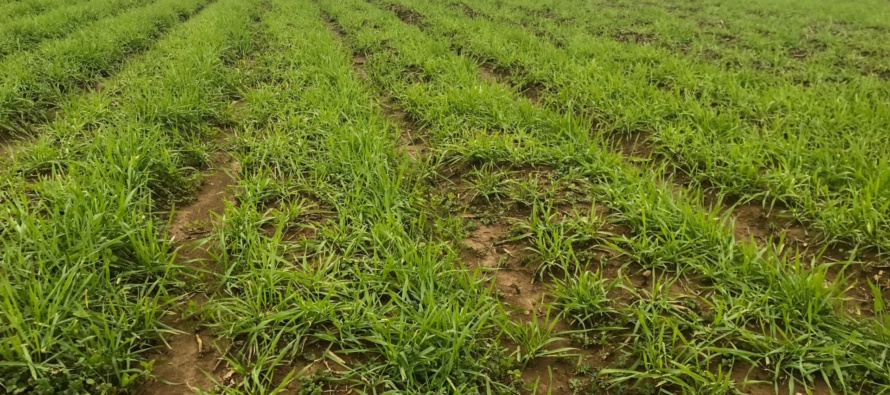When should Cover Crops be Terminated for Corn?

Related Articles
- 2010 Soybean And Corn Variety Trial Data 3
- Flag The Technology 0
- Spring Nitrogen Fertility Suggestions for Wheat 0
Latest Tweets
Cover cropping is a hot agricultural topic primarily driven by the goal of improving soil health and water quality. Cover crops produce vegetation which can help protect the soil from erosion, improve soil organic matter and provide other benefits during the winter when traditional summer crops are not grown. However, the cover crop growing season typically extends into traditional spring planting times for primary crops. Thus, cover crops may present issues by delaying planting progress, hampering efficiency and competing with primary crops. Accordingly, success depends upon managing cover crops to minimize potential interference between cropping systems.
Cover crops planted after fall harvest generally produce modest growth in the form of prostrate ground cover until warm temperatures and longer spring days promote rapid growth and reproduction. Therefore, many of the potential benefits associated with cover cropping, such as biomass contribution and nitrogen fixation, will likely be meager if they are terminated prematurely. However, profuse cover crop growth can also obstruct planting, immobilize nitrogen, and promote pest issues which threaten subsequent crops. Corn production presents considerable challenge because it is naturally suited and very responsive to early planting during March and April. Corn is also much more sensitive to emergence failure and plant growth disparity, compared to other primary crops, including soybean and cotton. Thus, finding a practical management solution between these plant systems will require compromise.
We have been conducting research evaluating methods to incorporate cover crops into successful corn production systems. One method to limit interference is to manipulate distribution of cover crops relative to the row where corn is planted. Thus, we evaluated numerous seeding methods which limited cover crop establishment in the intended planting zone or row. This included mechanical tillage treatments which spread seed outside the row, as well as strip tillage conducted after cover crop establishment, which removed plants within the row. Our results showed cover crop distribution managed by various methods did not affect corn productivity when cover crops were terminated with herbicides several weeks prior to planting.
Furthermore, studies confirmed that cover crop termination timing was a crucial management factor affecting the successful integration of cover crops with corn. Cover crop vegetation and dry plant residue not only hindered planter efficiency and stand establishment, but also stunted corn growth and reduced grain yield if cover crop termination timing was delayed close to planting. This was caused by vegetation reducing absorption of solar radiation and limiting soil temperature, which retarded corn growth and development. Herbicide termination treatments were evaluated at two week intervals from six weeks preplant until corn planting. A standard cover crop mixture consisting of cereal rye and berseem clover reduced corn grain yield 8 to 15% (14 to 23 bu/a) when terminated 2 or 0 wk preplant, compared with no cover crop or a traditional stale seedbed system. The cover crop produced similar corn yield as no cover crop when terminated 4 or 6 weeks preplant. Accordingly, we recommend cover crops be terminated at least four weeks prior to planting corn.
Your corn planting date goal may affect cover crop termination timing as well. Nearly two-thirds of the cover crop growth or biomass measured in our research occurred after March 1. Consequently, potential interference associated with cover crop growth would likely be less troublesome with early or March corn planting dates, because the amount of vegetation and residue following termination is rather minimal.





Let me tell You a sad story ! There are no comments yet, but You can be first one to comment this article.
Write a comment